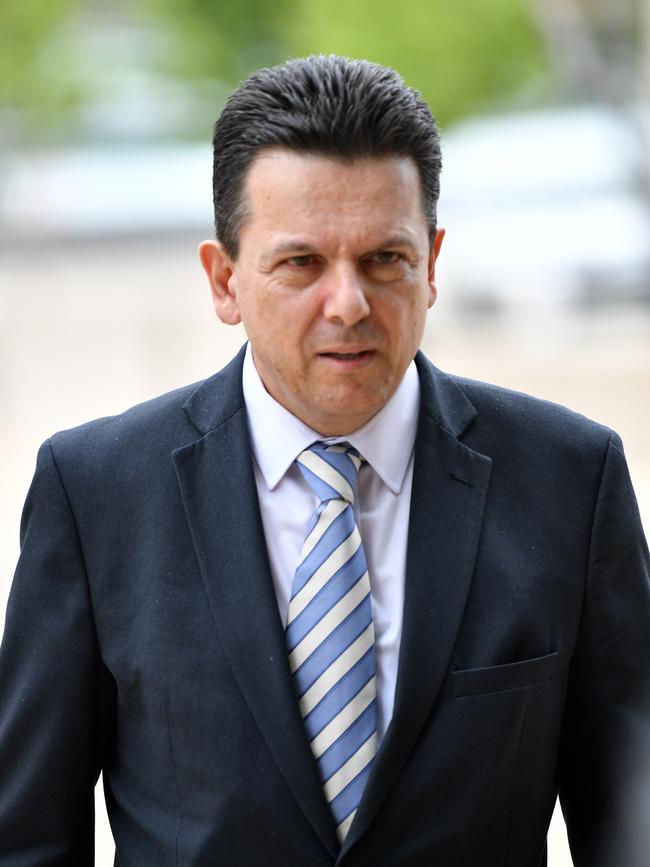Nick Xenophon announces $25 million plan for palliative care in SA
NICK Xenophon unveils his first major health plan with a $25 million pledge for palliative care.
News
Don't miss out on the headlines from News. Followed categories will be added to My News.
- Murray inquiry ‘already forcing change’: Jay
- South Australia in prime position for human-robot future
- Bell: Why I’m running in March election
- Chinese medical tourism en route to SA
THOUSANDS of terminally ill patients would get access to palliative care as part of a $25 million-a-year plan to be unveiled by Nick Xenophon.
The SA Best leader has vowed to increase the availability of end-of-life services, which he says are used by just one in four South Australians, compared with four in five people internationally.
“People can die having decent palliative care with dignity,” Mr Xenophon told the Sunday Mail.
“Done properly it would be revenue-neutral. People want to die at home with their loved ones. Not in a hospital ward.”

Mr Xenophon said 13,337 people died in SA in 2016 with only one in four getting access to palliative care.
“International evidence suggests that in a first-world community, 80 per cent of those facing death absolutely need palliative care,” he said. Mr Xenophon is confident his plan would become cost-neutral as more patients benefit from palliative care instead of high-cost intervention.
Under his plan to be unveiled today, SA Best will support a range of measures put forward by lobby group Palliative Care SA. They include:
PROPERLY designed community palliative care, which will give an additional 5600 people the choice to die where they wish, including at home – $14 million a year.
SHIFTING to a 24/7 service instead of the current system that only provides support Monday to Friday, 9am to 5pm – $4 million a year.
INTEGRATING palliative care into chronic care pathways including renal medicine, cardiac care, strokes, and respiratory medicine – $6 million a year.
PUBLIC awareness of palliative care – $400,000 a year.
Palliative Care SA chief executive Tracey Watters said her organisation was inundated with people who had been unable to access services.
“There are clear messages we keep getting from families time and time again which is ‘Why did we not know about palliative care?’,” she said.
Ms Watters said many people were caring for loved ones at home in what could become an almost full-time role.
“It gives them no time to be the family member,” she said.
In November, the State Government unveiled a 15-bed palliative healthcare unit at Flinders Medical Centre that replaced the Daw House Hospice at the Repat.
The State Government currently provides palliative care through each local health network and recent investments include purpose-built inpatient units at Royal Adelaide Hospital and Flinders Medical Centre.
Additional investments have been promised for Queen Elizabeth Hospital and Modbury Hospital.
SA Health also provides some community care, including in-home care.


